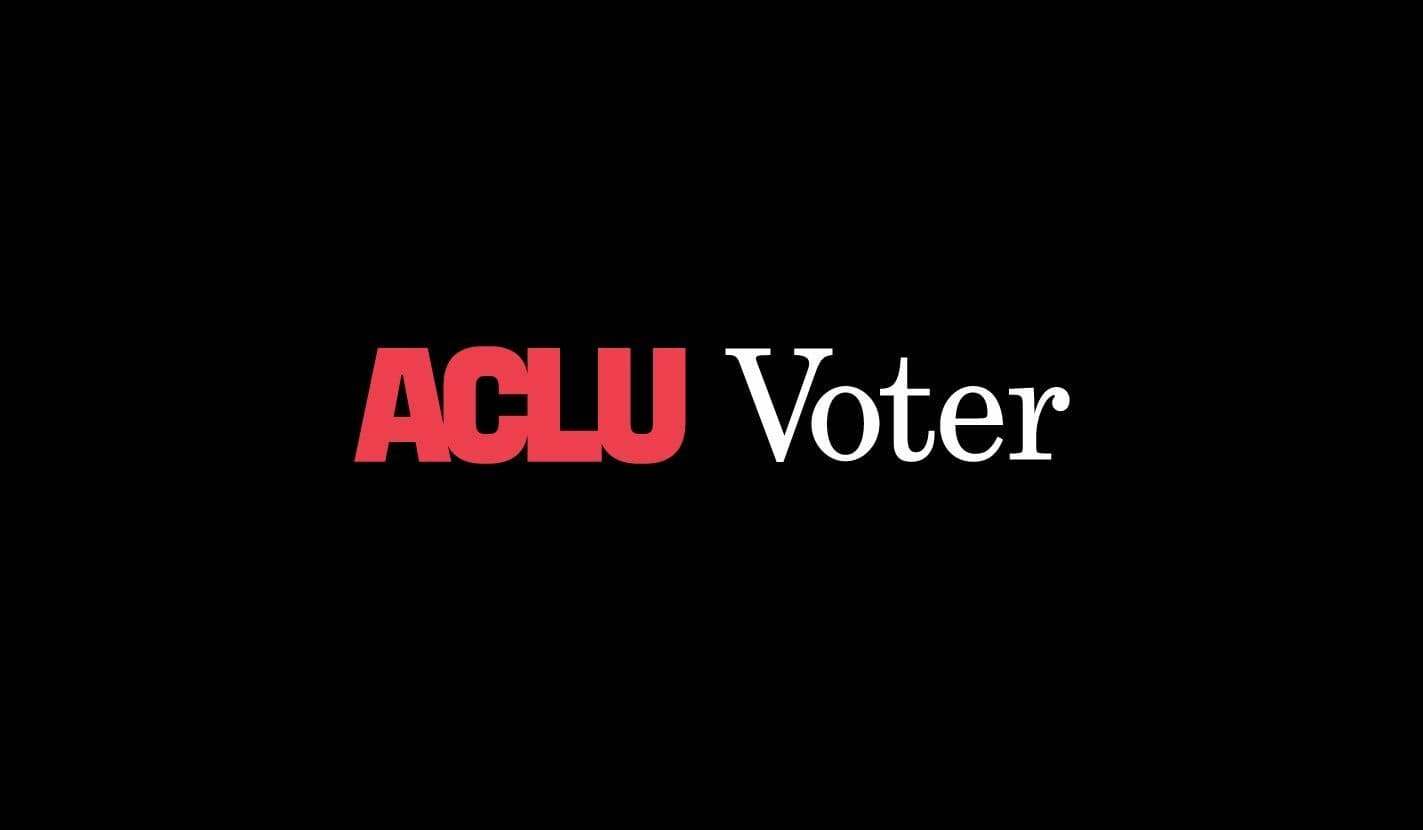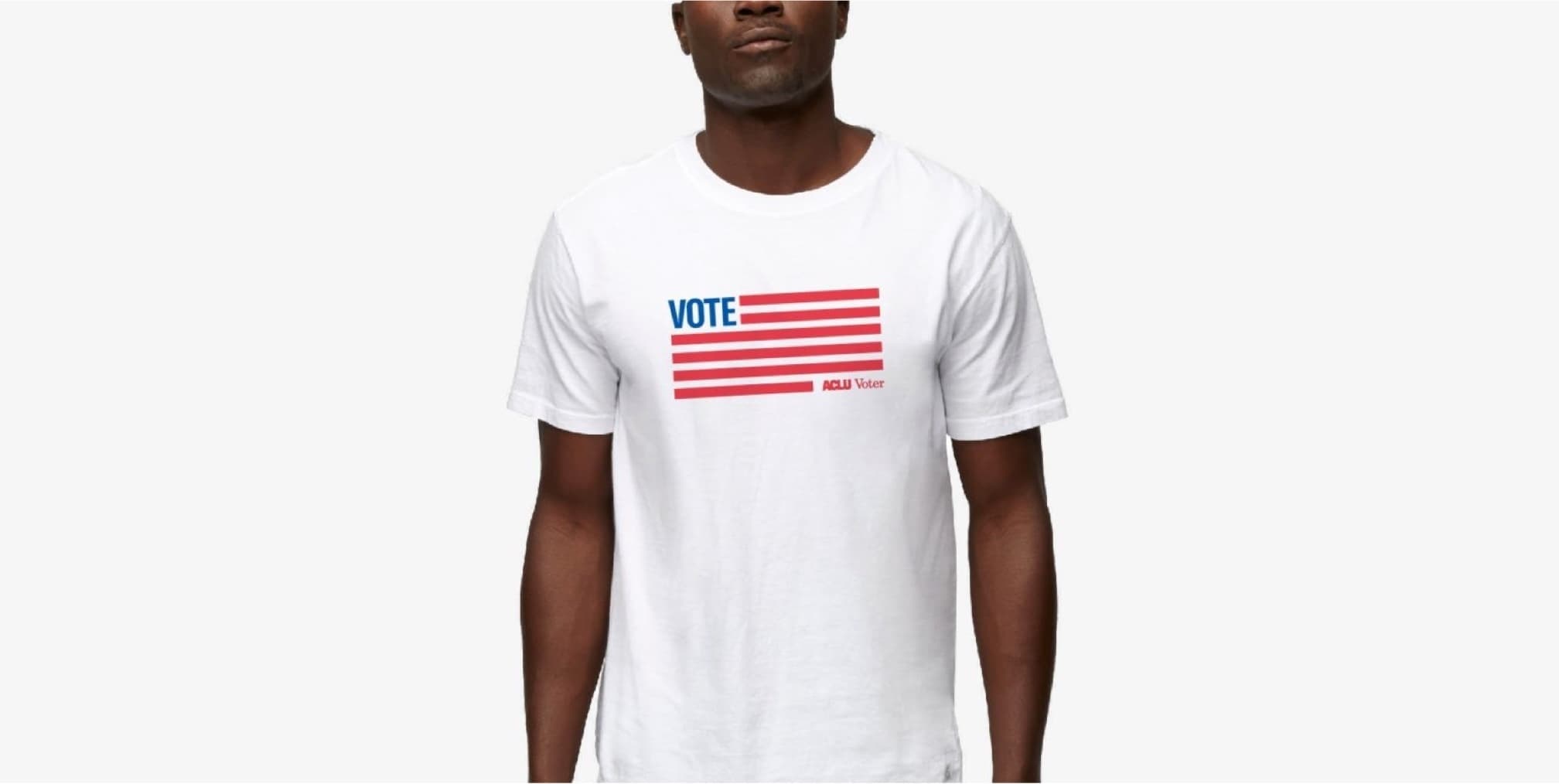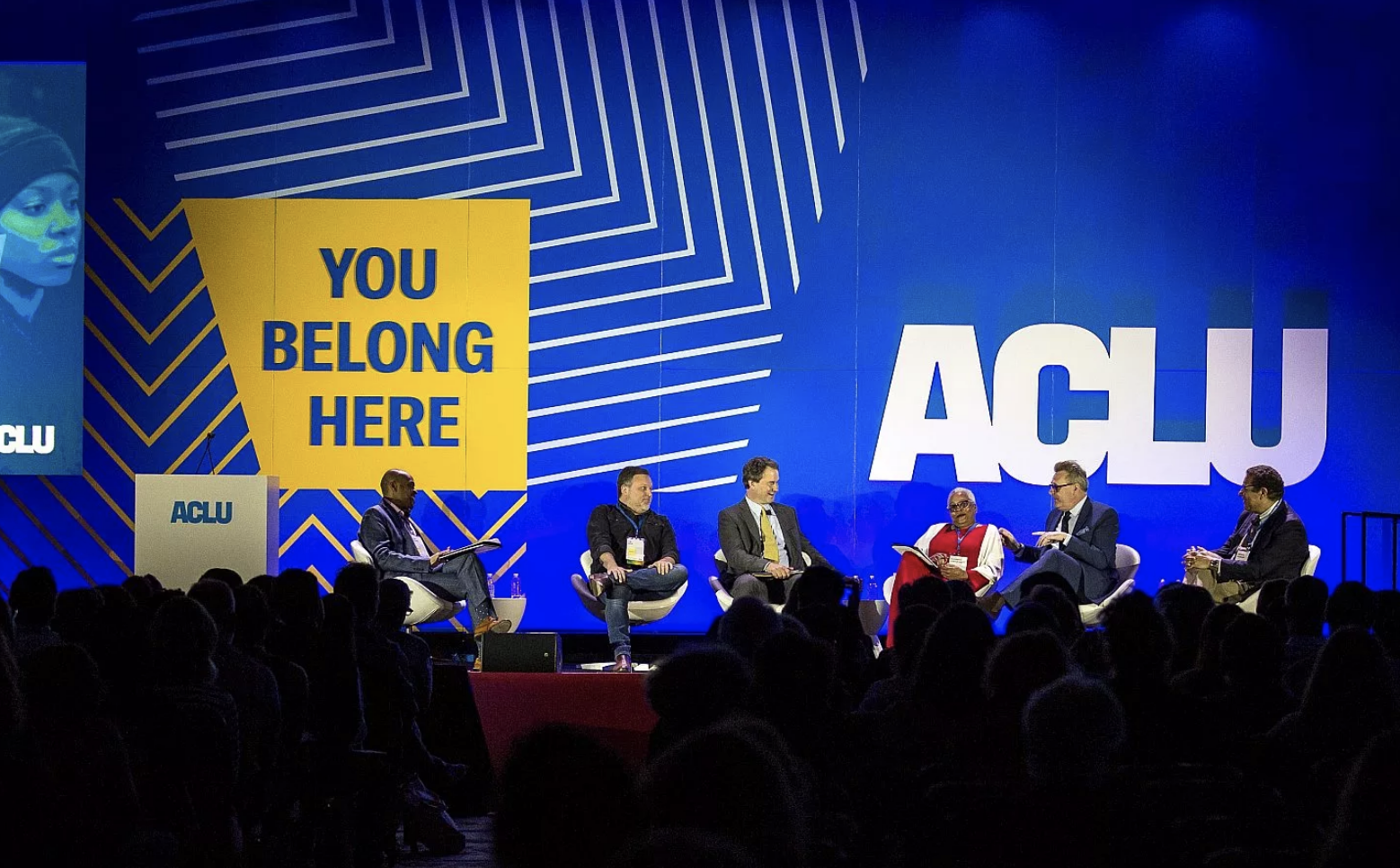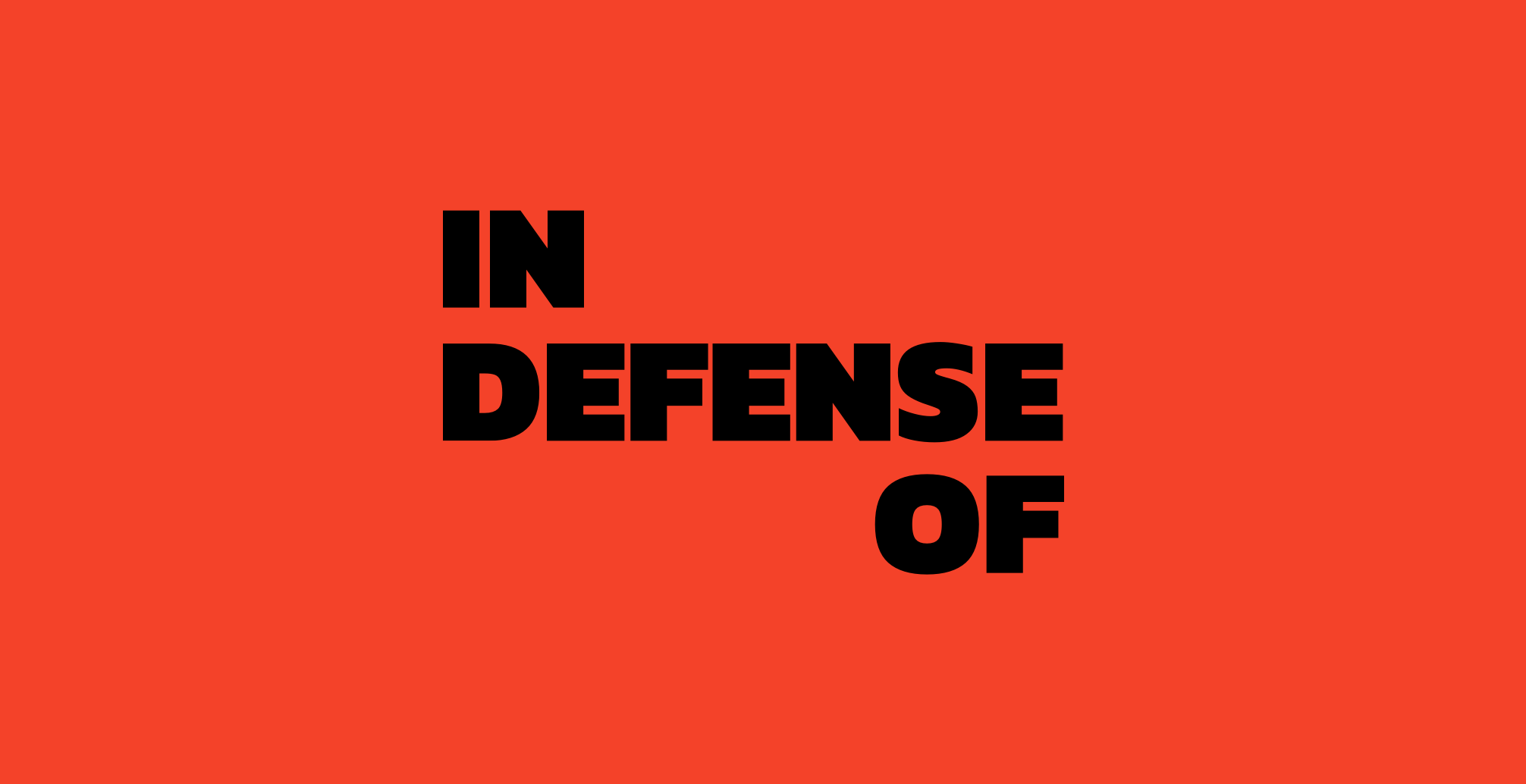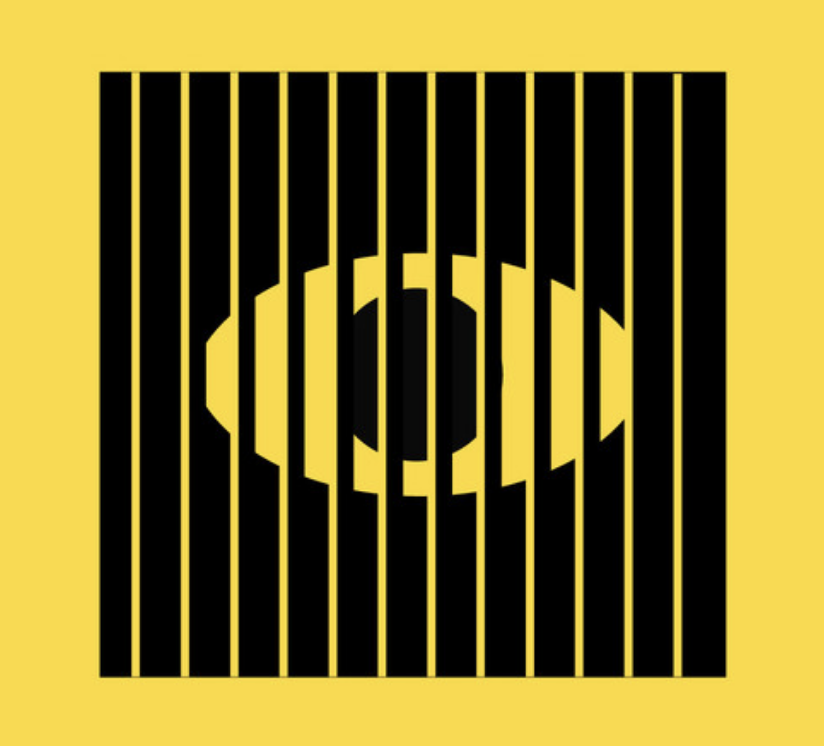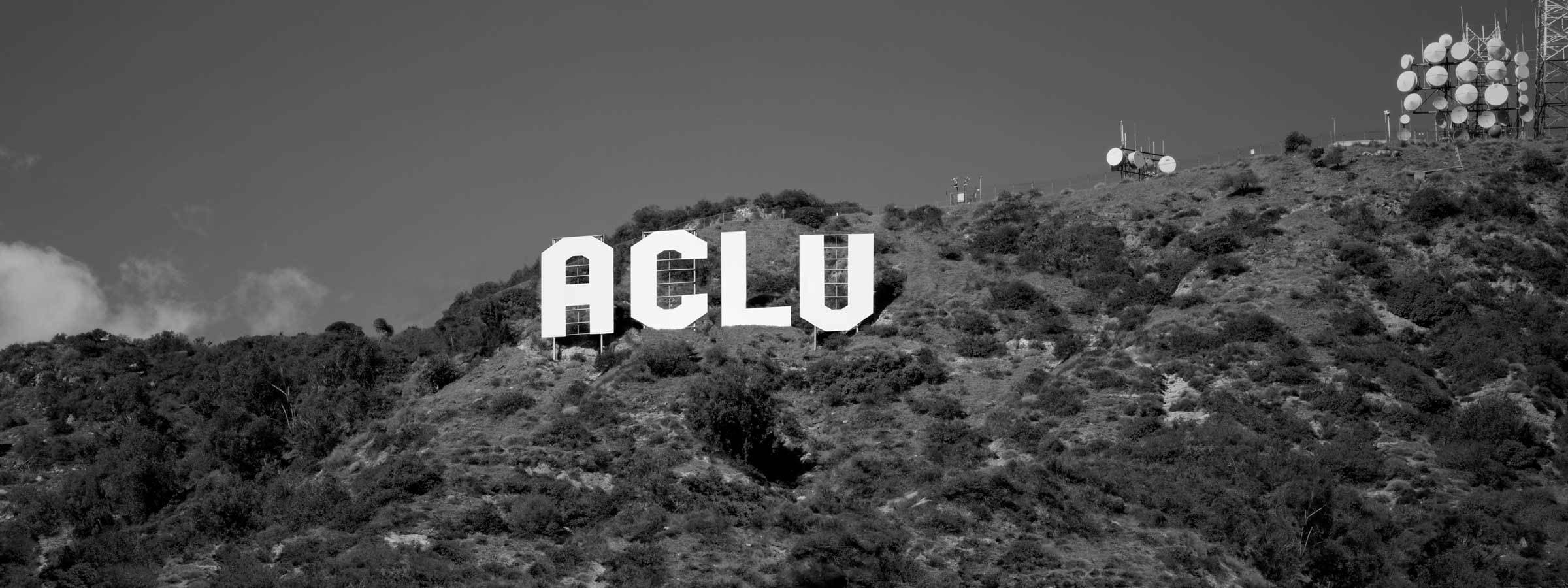
Background
Hollywood films reach a broader audience than any other form of media in history. The most successful often revolve around aliens, car chases and fast sex, but they also have the potential to engage the entire world in meaningful dialogue on important social issues. In an age of warrantless surveillance, mass incarceration and endless war, movies as diverse as Taxi to the Dark Side and Harold and Kumar Escape from Guantanamo Bay have addressed issues of civil rights on the silver screen.

The challenge
The American Civil Liberties Union, a legal nonprofit at the vanguard of constitutional rights for over 90 years, wanted to leverage the enormous influence of Hollywood to advance discourse on law and freedom. The ACLU’s Rights/Camera/Action program encourages entertainers and celebrities to participate in vital debates on civil rights in their work. The program sponsors discussion forums and study groups to promote and understand the role of mass media in effecting social change.
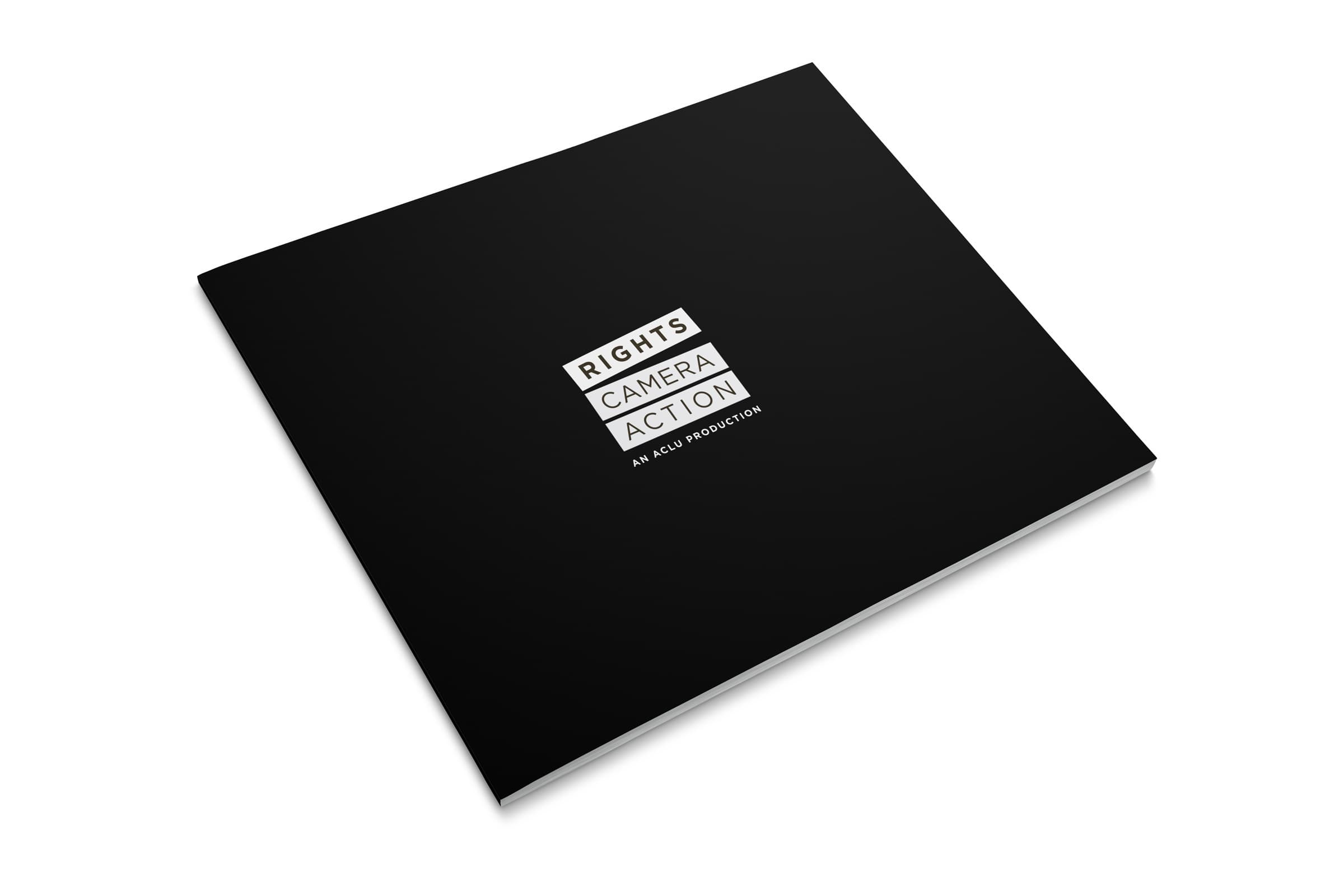
The opportunity
Hyperakt resolved the program’s branding by referencing the iconic image of the “action” clapboard. This immediately communicates the ACLU’s connection to the film and entertainment industry. A stark black and white color palette was established to respect the seriousness of the content. Strong diagonal graphic elements referencing the logo are present throughout the promotional brochure, website and posters created for the program.
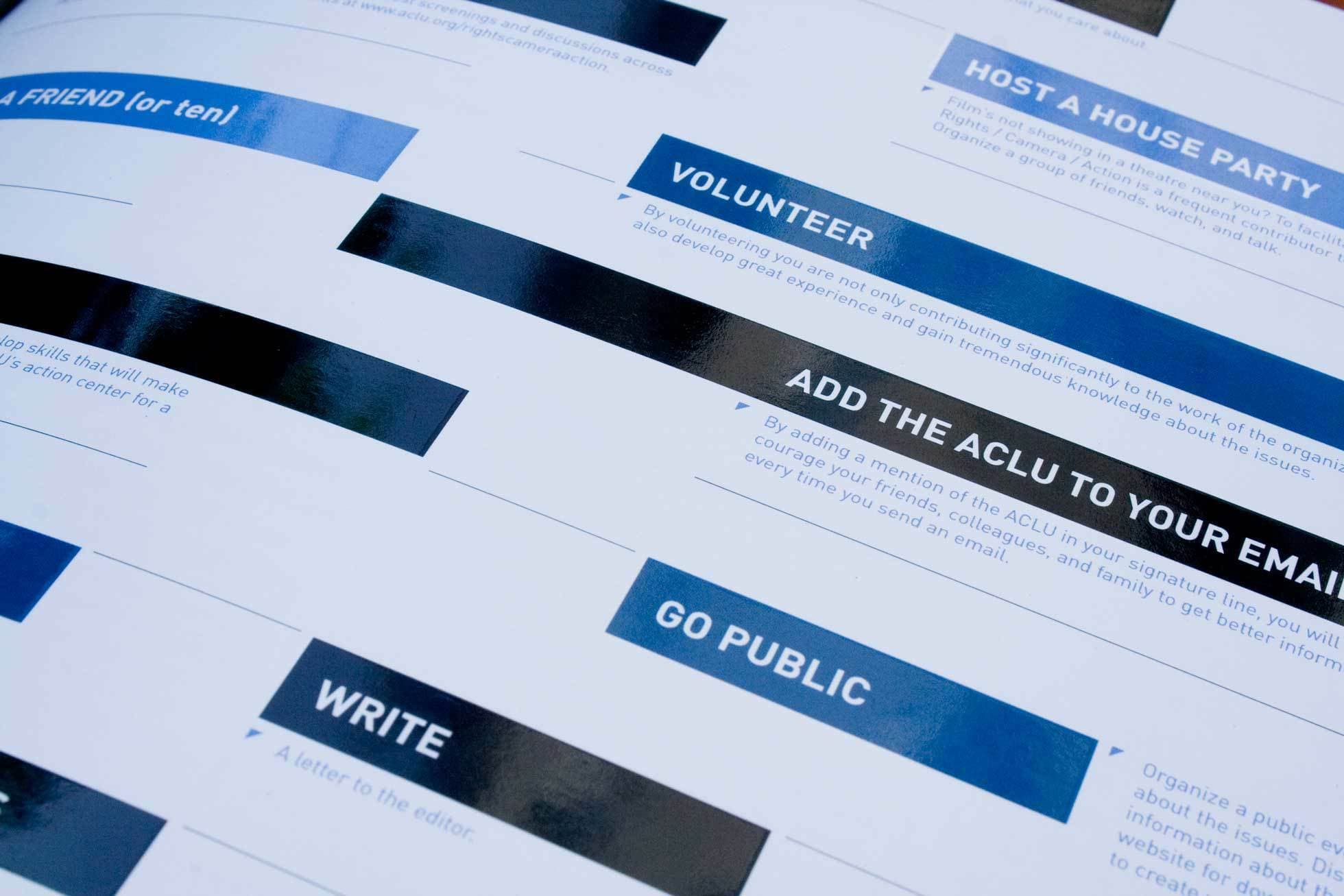
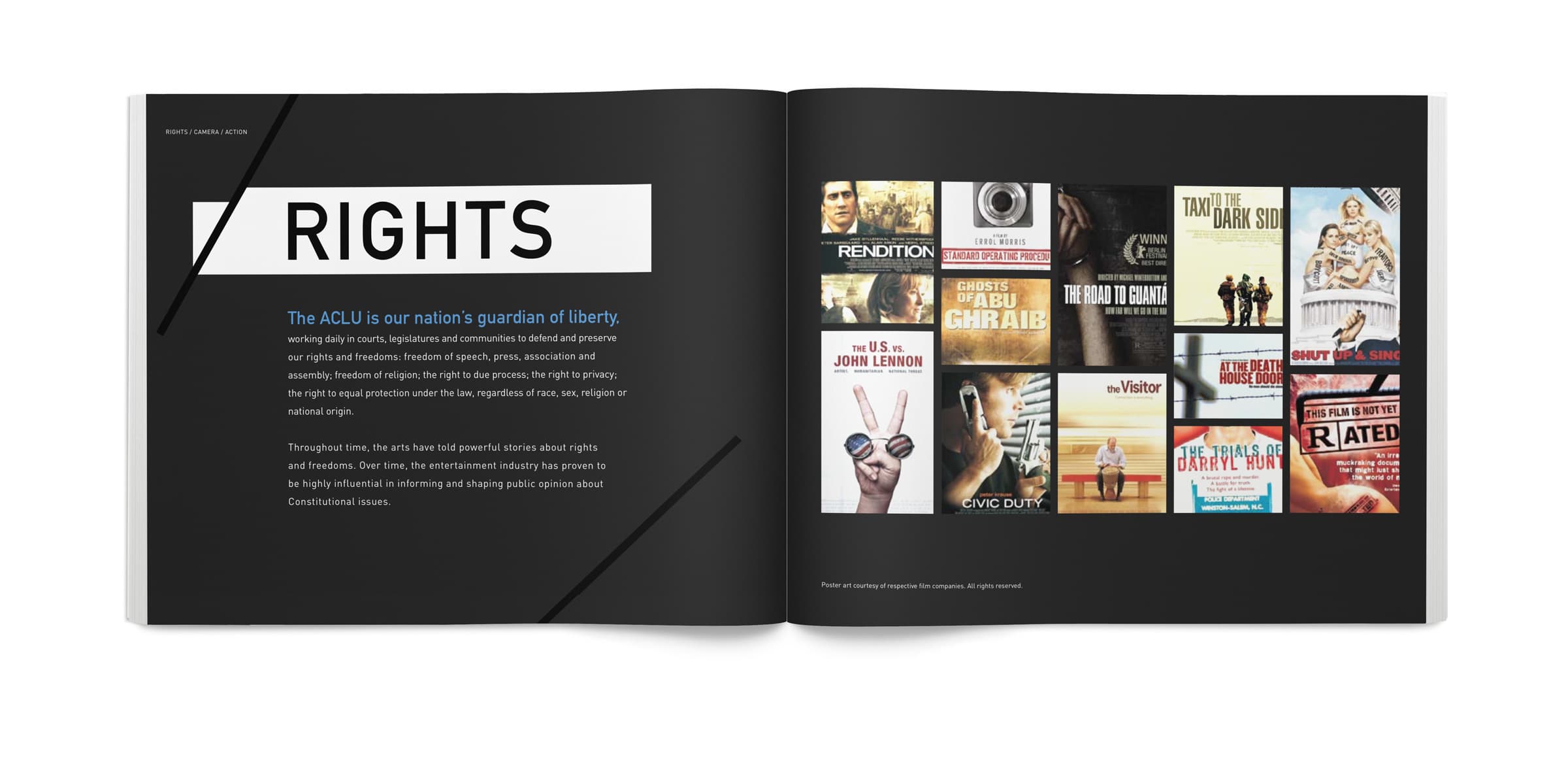
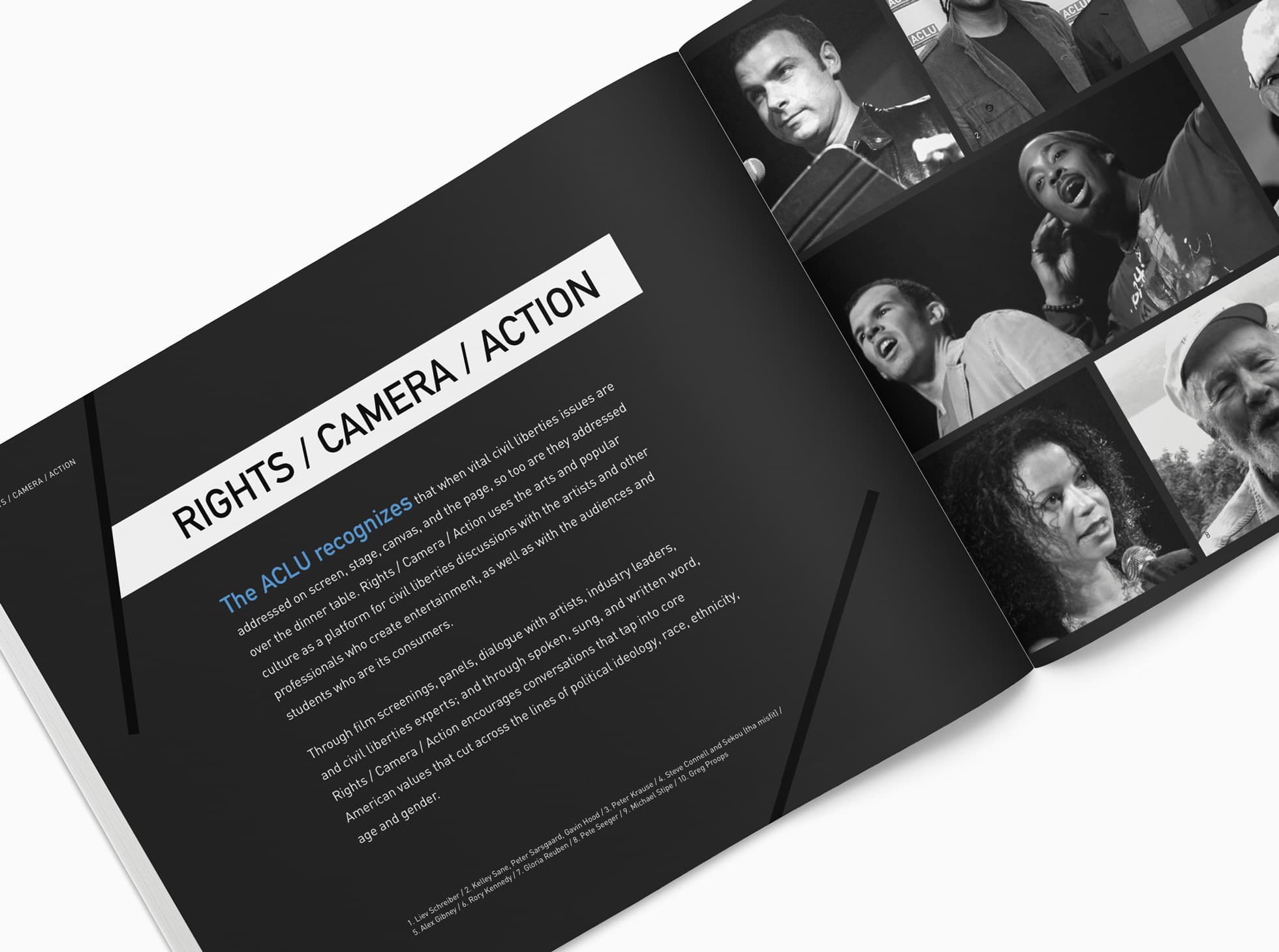
Project Credits
- Deroy Peraza
- Julia Zeltser
- Matthew Anderson
- Monica Sanga
- Simon Corry
- Rosemary Hahn
- Yao Chang
- Jay Sung
